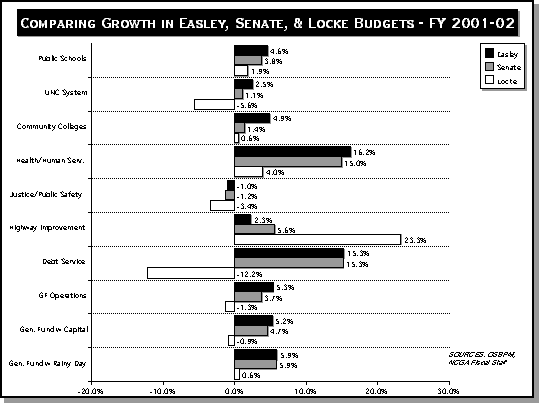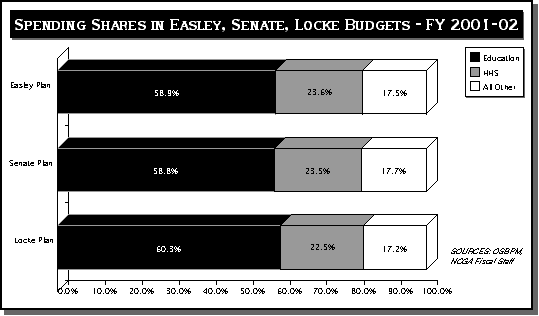When the North Carolina Senate’s proposed budget for FY 2001-03 was released last week, lawmakers and political observers immediately pounced on provisions such as closing Dorothea Dix mental hospital in Raleigh to compare the plan unfavorably to that proposed earlier this year by Gov. Mike Easley. In reality, the two plans differ only modestly, as the graphs on the next page reveal.
If one focuses solely on the General Fund operating budget, the governor was less restrained, with a 5.3 percent increase vs. a 3.7 percent for the Senate plan. But the Senate includes $100 million for repairs and renovations to state buildings and another $33 million for capital construction. When capital spending is included, Easley allowed only slightly more growth 5.2 percent than the Senate’s 4.7 percent. And this difference is explained entirely by the Senate’s decision to commit $164 million to the state’s Rainy Day account, compared with the governor’s $67 million.
Among specific spending categories, there were comparatively minor differences in proposed spending for public schools, universities, health and human services, and public safety. Both budgets allow a startling 15.3 percent increase in debt service. There were significant differences in community colleges, where Easley proposed far larger growth (4.9 percent) than the Senate (1.4 percent), and highway maintenance and construction, where the Senate (5.6 percent) outspent Easley (2.3 percent).
The Changing Course budget published this month by the John Locke Foundation offers a substantially different budget. It would essentially hold total spending and saving constant in FY 2001-02, compared to a nearly 6 percent increase for both Easley and Senate budgets. And it contains a net tax cut of $569 million when fully phased in, compared to tax hikes of $150 million by
John Hood, President






